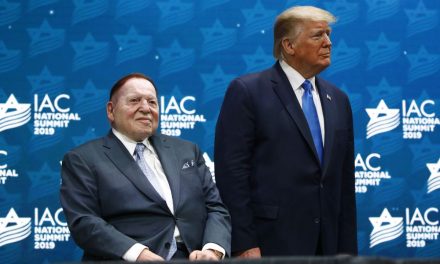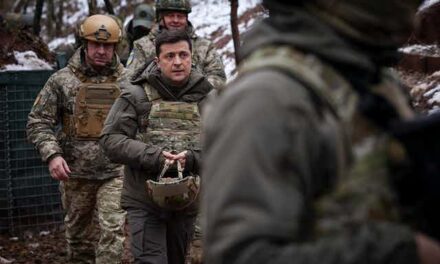First the good part. The military strikes that Donald Trump authorized tonight against a Syrian airfield avoided many possible pitfalls. The target made sense, as it is the Intelligence Community’s assessment that the presumed sarin attacks that were carried out three days ago were launched from that particular airfield. If early reports are correct (and we know that they often are not), the Russians were forewarned, thereby hopefully allowing them to avoid taking casualties which might result in an unpredictable escalation. Also, the missile strikes did not create any necessary logic of mission creep, which is vitally important because we have no overarching mission in Syria due to the fact that we don’t want any armed faction to win.
The Obama administration wisely refrained from toppling Assad once it became clear that the likely beneficiaries would be extremist Sunni militants. They smartly avoided being pressured into taking a Sunni-centric position on the civil war, and they also were sensitive enough to realize that it would cause irreparable harm to our efforts to work with the Shiite dominant government in Baghdad. At the same time, they had both humanitarian and geopolitical reasons for not wanting the resistance to the Assad regime to be crushed underfoot. To stand aside while that happened would create enormous problems with Turkey, Saudi Arabia, Jordan, Egypt and the Gulf states (where we have both air and naval bases).
Unfortunately, this put us in the position of preferring a continuance of the war to any possible short-term resolution of the war, and that allowed the refugee problem to blossom into a huge headache for our European allies accompanied by a far-right political backlash that is still playing out.
The missile strikes tonight won’t solve these conundrums, but they won’t in and of themselves exacerbate any of them.
The other positive thing I can say is that there is a good justification for these strikes (assuming the evidence bears out) because some entity must enforce the ban on chemical and biological weapons. If you think about this narrowly, by smacking Assad in the face for using sarin gas, while not doing anything to fundamentally alter the battlefield, the United States is saying that we don’t even have to be dedicated to your defeat in war to punish you for waging war with banned weapons.
As with nuclear nonproliferation, it would be best if the United Nations could act with one voice and be the enforcement mechanism, but it cannot act if one of the permanent members of the Security Council blocks action, as Russia has in this case. And, regardless, once the UN authorizes a military response, someone has to carry it out.
There are real problems with the United States bearing this kind of burden, whether it is blessed by the international community or not, but the alternative is nuclear proliferation and battlefield use of WMD without any deterrence or consequence. Either that, or these strikes will be carried out by the only other militaries capable of doing them, which would be China or Russia. I’m not ready to hand that responsibility off to them, and they wouldn’t reliably assume the responsibility anyway.
So, we’re treated to the odd spectacle of our president taking a break from meeting with the Chinese president to inform us that he’s launched missile strikes that were not approved by China (a permanent member of the U.N. Security Council) in order to enforce international norms.
A ton could go wrong with this. Our president doesn’t seem to have the capacity or attention span to grasp all the risks of what he’s done here. But it does seem that he listened to his national security staff and made sure to authorize something that has a minimal risk of escalation and doesn’t commit us to any further action in any particular direction.
I do want to know more, though, because we used a lot of firepower considering what we set out to destroy:
The U.S. military launched 59 cruise missiles at a Syrian military airfield late on Thursday, in the first direct American assault on the government of President Bashar al-Assad since that country’s civil war began six years ago…
…In comparison, the start of the Iraq war in 2003 saw the use of roughly 500 cruise missiles and 47 were fired at the opening of the anti-Islamic State campaign in Syria in 2014.
To me, using more than a tenth of the Shock-and-Awe arsenal that signaled the start of the second Iraq War seems like overkill if all we were targeting was an airfield, some hangars and a few oil depots. It’s awfully expensive, too. But I suppose part of the point was to make a strong impression.
It’s too early to say whether this action is something I can support. If it’s the beginning of a war to topple the Assad regime and we have no plan for the aftermath, then I could not be more opposed to it. But if it is just a statement that we we’re willing to enforce norms against the use of WMD (and that’s all it is) then all I want to see is the evidence that the Assad regime did what we’re accusing them of doing. I don’t doubt it, but I also think it’s very important that these types of things are supported by vigorous evidence that is convincing to the world.
I don’t like that our nation is in this position of acting sometimes unilaterally to prevent the use and proliferation of WMD. I think we underestimate how much resentment and blowback it causes. But I don’t support giving up on these norms, either.
In general, with this administration, my disposition is to oppose all military missions on the theory that they’ll screw up even the well-intended ones, but this one so far looks to have been carefully designed to minimize that risk. I hope I’m right.




![Trump’s Israel First! [Update]](https://progresspond.com/wp-content/uploads/2019/04/Foreign-Affairs-440x264.jpg)

